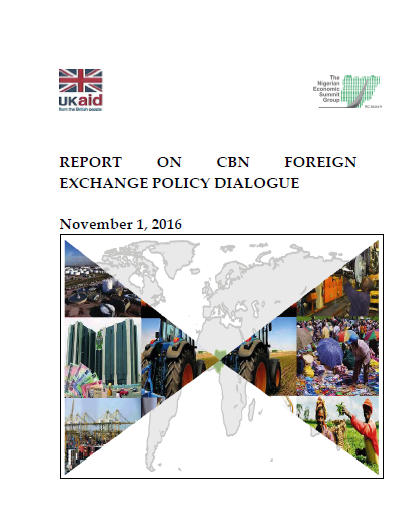In June 2015 the Central Bank of Nigeria restricted the sale of foreign currency for the purchase of certain items following a slump in government revenue resulting from a decline in crude oil prices. The decision aimed to conserve foreign reserves, facilitate the resuscitation of domestic industries and improve employment generation, but proved unpopular, particularly due to its unintended impact on small businesses.
Against this background, the Central Bank of Nigeria forex second policy dialogue was held in November 2016 to examine the impact of the foreign exchange policy on small and medium-sized businesses and citizens, gain a better understanding of the bank’s plans, and seek alternatives and next steps. This event report sums up the key messages to emerge from the dialogue.

